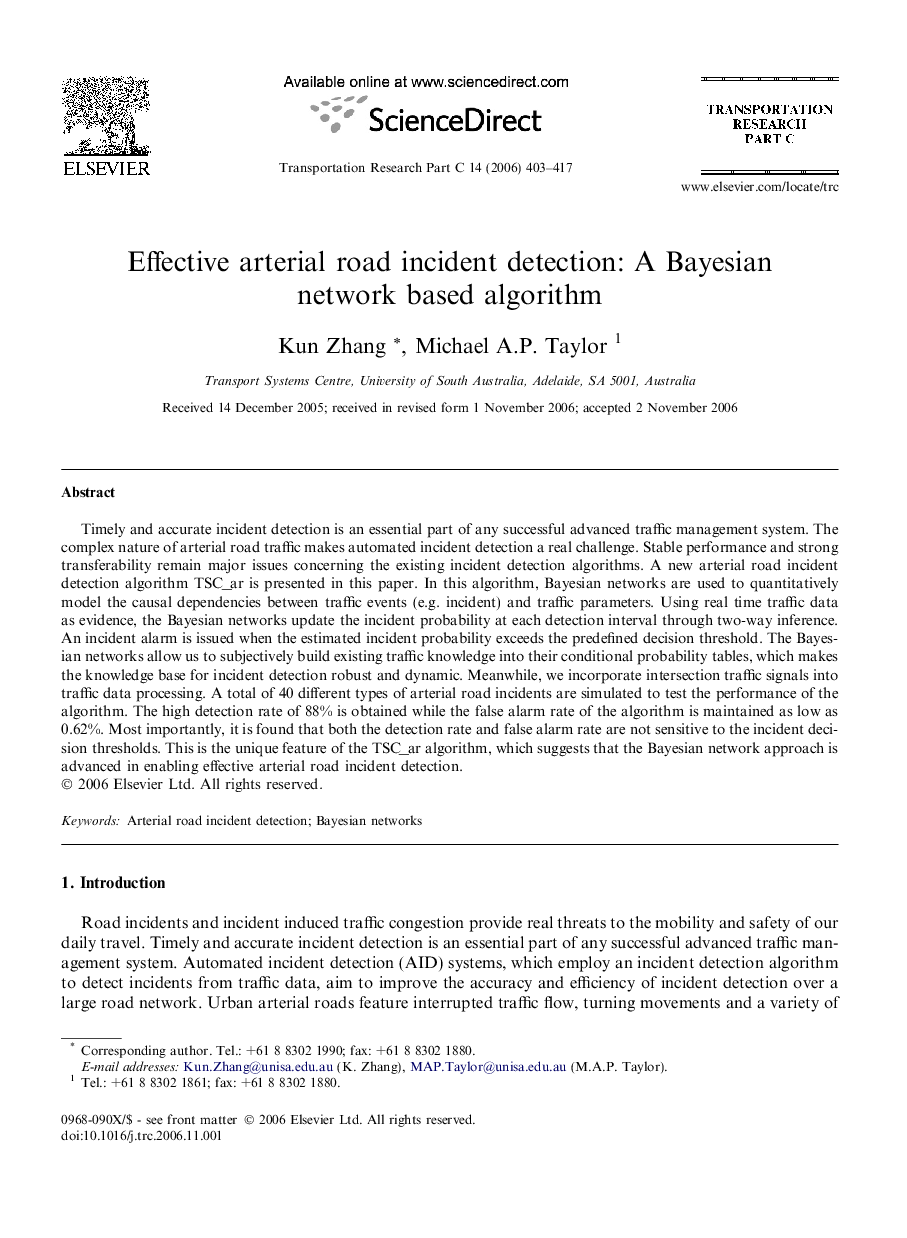| Article ID | Journal | Published Year | Pages | File Type |
|---|---|---|---|---|
| 525532 | Transportation Research Part C: Emerging Technologies | 2006 | 15 Pages |
Timely and accurate incident detection is an essential part of any successful advanced traffic management system. The complex nature of arterial road traffic makes automated incident detection a real challenge. Stable performance and strong transferability remain major issues concerning the existing incident detection algorithms. A new arterial road incident detection algorithm TSC_ar is presented in this paper. In this algorithm, Bayesian networks are used to quantitatively model the causal dependencies between traffic events (e.g. incident) and traffic parameters. Using real time traffic data as evidence, the Bayesian networks update the incident probability at each detection interval through two-way inference. An incident alarm is issued when the estimated incident probability exceeds the predefined decision threshold. The Bayesian networks allow us to subjectively build existing traffic knowledge into their conditional probability tables, which makes the knowledge base for incident detection robust and dynamic. Meanwhile, we incorporate intersection traffic signals into traffic data processing. A total of 40 different types of arterial road incidents are simulated to test the performance of the algorithm. The high detection rate of 88% is obtained while the false alarm rate of the algorithm is maintained as low as 0.62%. Most importantly, it is found that both the detection rate and false alarm rate are not sensitive to the incident decision thresholds. This is the unique feature of the TSC_ar algorithm, which suggests that the Bayesian network approach is advanced in enabling effective arterial road incident detection.
